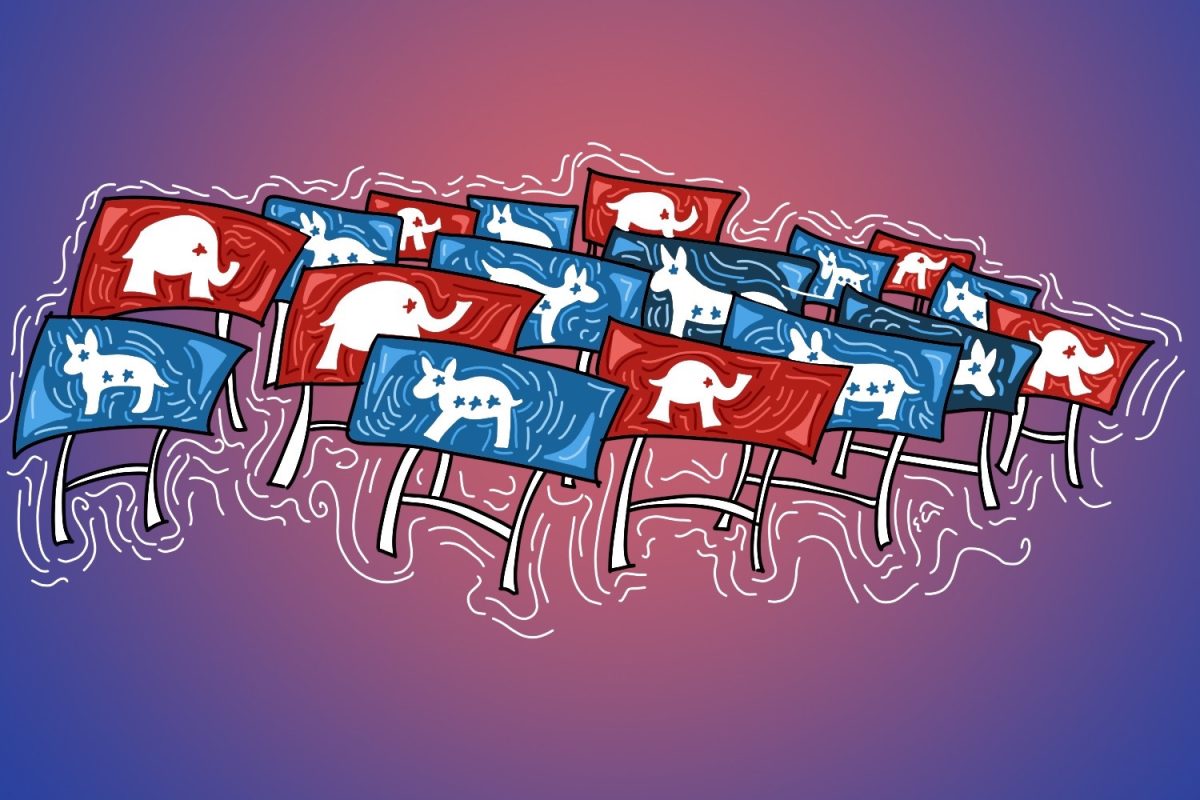A few hundred thousand people in seven states will decide the outcome of the presidential election, according to a May 6 Axios article.
If you are not one of these people, and you probably aren’t, it may not be clear why it’s important for you to vote, as the majority of states are considered almost guaranteed to break one way or another.
Any time there’s a question about collective action, as with voting, you have to consider the categorical imperative, or what would happen if everyone behaved exactly the same as you.
Even in a swing state, it’s exceedingly unlikely that your ballot specifically will be the vote that breaks a tie, according to a March 2010 Economic Inquiry article. Even the slimmest of margins are in the tens of thousands, almost never just one person.
In such an individualistic society, it’s hard not to think in terms of the broad significance of your actions. However, the notion that the difference you would be making is too negligible to be necessary has radical consequences when widely adopted.
To someone with a sense of practicality, this is still an unconvincing argument. If a swing state vote is a drop in a puddle, then a vote in a non-swing state is a drop in the Pacific.
The categorical imperative argument falls flat, because not everyone will behave as you will. The odds that every single Vermonter or Mississipian decides their state is a foregone conclusion and stays home are quite low.
What is worth considering isn’t so much the outcome of the race, but the way campaigns operate. The world we live in operates on one thing more than any other: data.
Campaigns have access to more information regarding voters than ever before, and this influences their policy positions and messaging, according to an April 16 Electronic Frontier Foundation article.
It’s one of the ways in which democracy extends beyond simple voting, as campaigns will identify key demographics to appeal to and draft policy for.
If you think of yourself as part of a smaller demographic, the information you provide by voting can be thought of as more valuable than if you only saw yourself as part of the entire electorate.
Campaigns look at not only who won, say, women, but who won women under the age of 35 who own a home and have a cat but want a dog.
The specificity of information, fueled by voting, polling and focus groups means that they are better able to make informed decisions about what the electorate wants.
While the Electoral College skews results, this data is still important for people of similar demographics in swing states. Someone in Oklahoma may not feel addressed by either campaign, but their data may help campaigns better target those with similar interests in swing states, indirectly helping them.
In a country where elected officials are trying to find consensus between millions of people, the louder you can make your individual voice, the better chance you have of moving the needle, even if it’s just a teeny tiny bit.
Democracy can be tedious, unbelievably slow, inefficient, and at times, quite confusing.
As Winston Churchill once said, “Democracy is the worst form of government except for all those other forms that have been tried.” It’s like a problematic child we have no choice but to keep taking care of.
Many feel as though our elections are out of our control, and while this may be the case in some instances, it is still important to fulfill our civic duty.
If nothing else, we can be the band on the Titanic playing as we sink.













